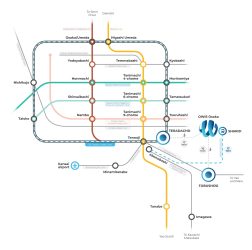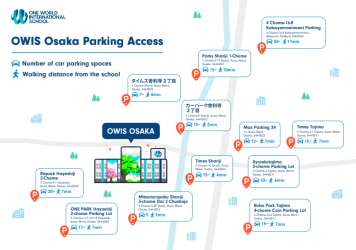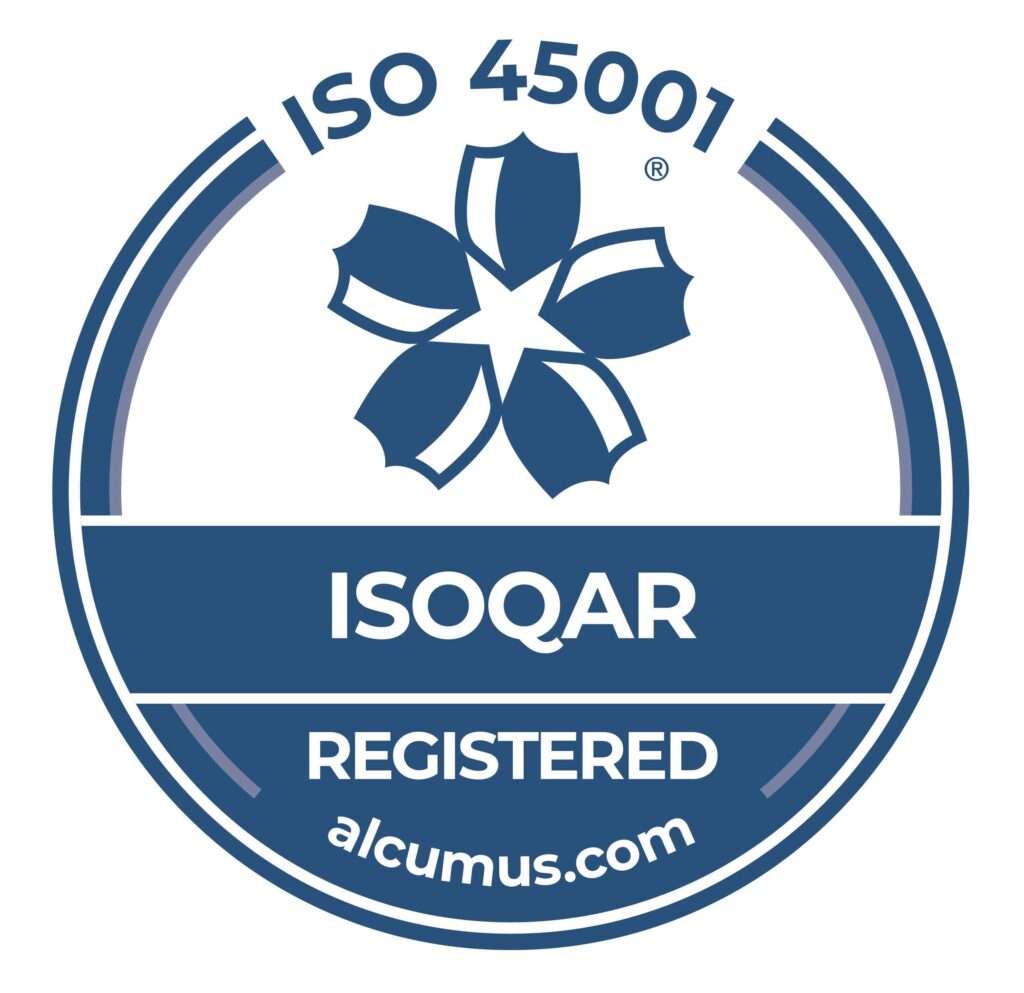This approach has received recognition, but it has also drawn criticism for placing too much focus on memorization and a strong reliance on written tests. This affects independence, and creativity as students often play passive roles in their education.
The Japanese educational system is changing and undergoing revisions in response to worldwide trends. The Ministry of Education acknowledges the value of diversity and the need for increased English language competency. Inquiry-based learning (IBL) is being included in national curricular guidelines as part of these initiatives. This change highlights how important it is to have a dynamic, internationally-focused curriculum.
Many global curriculums, like the International Baccalaureate are built around this teaching approach, which is already effective in international schools. Students who participate in inquiry-based learning are more independent, creative, and critical thinkers. It gives children the abilities necessary for success in our globalized society.
Understanding inquiry-based learning is valuable for any parent who wishes to educate their kids for a changing environment.
What is Inquiry-Based Learning?
Inquiry-based learning is an educational approach that places students at the centre of the learning process. In this method, students are encouraged to ask questions and explore their answers. It involves establishing an in-depth understanding of the subject matter in addition to applying critical thinking and problem-solving techniques. The goal is to empower students to take charge of their education. Students are motivated to pursue information independently and with curiosity.
Student-based Learning vs Teacher-based instruction?
Inquiry based learning has a foundation in student-centered education. It is notably different from teacher-centered instruction. In the traditional model, teachers directly transmit knowledge. Students are more passive and receive information without necessarily connecting and applying it to real-world situations. In contrast, inquiry based learning encourages students to embrace curiosity and their own independent journey of discovery.
TRADITIONAL LEARNING | INQUIRY-BASED LEARNING | |
|---|---|---|
Role of the Teacher | Teacher is the centre of knowledge | Teacher is a facilitator |
Learning Process | Fixed and predefined curriculum | Flexible, dynamic, inquiry-based curriculum |
Student Engagement | Passive role, only receive information. | Active participation, autonomy, take ownership |
Curiosity and Critical Thinking | Emphasis on memorization through repetition | Promotes inquiry, creativity, and critical thinking. |
Real-World Relevance | Theoretical background, little connection to real-world situations | Practical: connects theory and application to real-world situations |
Collaboration | Individualized learning | Encourages collaborative learning and teamwork |
Inquiry-based learning works better when we consider possible barriers, cultural differences, and technological changes. It’s important to understand these factors to make this way of learning fit the needs of students today.
Globally, there has been a shift toward a student-centered approach. This is a change from the traditional teacher-centered model. Instead of being the sole source of information, the teacher becomes a facilitator in the classroom. Inquiry-based learning supports a more balanced distribution of focus between the teacher and students. In this setting, the instructor supports and guides students as they take part in classroom activities. This establishes a collaborative and interactive learning environment.
Educators implement Inquiry-based learning through methods like structured inquiry, guided inquiry, open inquiry, and collaborative inquiry.
Models of Inquiry

Understanding these diverse inquiry-based learning models is crucial, providing multiple benefits to both students and teachers.
Structured Inquiry
In this method, students learn through an organized approach. It includes asking questions and investigating real-world challenges. At each level, teachers present a question, demonstrate a required technique, and offer step-by-step guidance. This gives an anticipated result, similar to following a recipe.
An example is in science classes, where students are given a problem and expected to investigate it using the scientific method (Question, Research, Hypothesis, Experiment, Data Analysis, Conclusion, and Communication) to find a solution.
Guided Inquiry
The guided inquiry method is when the teacher navigates students through the inquiry process. This means helping them ask questions and find solutions to problems. The teacher sets a goal, shows the steps, and then lets students do it by themselves. This type of learning is often used in elementary and middle schools. As students are still learning, they need support in forming good questions and doing certain activities. They may also need help expressing their thoughts.
Open Inquiry
This form of inquiry-based learning is open-ended, recognizing that there is no one right answer. Students have the freedom to explore a topic that interests them, and ask related questions. It is an unstructured method that recognizes that there may be several correct solutions. It also allows the use of different methods to reach the objective. This is helpful for encouraging diverse learning and thinking styles. It is commonly used in humanities studies because students can look deeply into a topic, and consider it from different perspectives.
Collaborative Inquiry
Collaborative inquiry-based learning focuses on students working together to explore and solve problems. This encourages active participation, communication, and teamwork skills. It is commonly used in group projects or field trips. This approach develops skills such as active listening and being open to diverse opinions.
Problem-Based Inquiry
In this approach, students are given real-world problems to solve. These problems often do not have a clear solution, so they give students a challenge. This motivates students to apply their knowledge, research and problem-solving skills to find an answer. This strategy is often used in mathematics, engineering, and applied science programmes. Problem-based inquiry is praised for encouraging the development of practical skills and higher-level thinking.
The Benefits of an Inquiry-Based Learning
Inquiry-based learning, which is common in curriculums such as the International Baccalaureate (IB), encourages student-led research and real-world problem-solving. This method promotes curiosity and engagement. Students are more likely to remember material when they actively participate in learning.. It also helps students develop life skills, self-reliance, and confidence.
Critical Thinking Skills
Inquiry-based learning encourages students to think critically, evaluate presented information, and develop their own conclusions. Critical thinking skills are important both to the school environment and in real life situations. These skills allow a child to analyse information, consider the evidence and make reasoned judgments. Learning to think critically fosters wise time management, problem-solving, innovation, creativity and the ability to connect concepts.
By having excellent critical thinking skills, students are better able to express themselves. This is because they have developed the ability to think clearly about an issue and explain their thoughts. This also improves their interpersonal skills, and makes them confident decision-makers. It’s clear that those who can think critically will trust their judgement and be more successful in school and their future career.
Deep Understanding
Inquiry-based learning can also help students comprehend complex topics and develop a deeper understanding. Many curriculums focus solely on the goal of memorising facts just long enough to pass an exam. In contrast, schools like One World International School (OWIS) Osaka, which implements inquiry-based learning, appreciate the value of deep understanding. Utilising an inquiry-based curriculum allows each child to connect the new things they are learning with prior knowledge. By exploring topics in-depth, students understand the subject matter better and foster a deeper understanding. They can also learn about these topics more effectively if they are given the opportunity to experiment with them.
Information Retention
The goal of education is for students to retain information in the long term. Inquiry-based learning encourages students to actively engage in the learning process. They construct their own knowledge and real-world application by connecting new information to the material they have already learned, which enhances memory recall. By making lessons enjoyable, stimulating, and collaborative, it’s possible to enhance brain and emotional activity, leading to improved memorisation. This is achieved by connecting the acquired knowledge with the activities or interactions through which it was learned.
Lifelong Learning Skills
By engaging with an inquiry-led curriculum, students develop research skills, the ability to solve problems, informational literacy, and the skills to ask meaningful questions. These skills are great for school, but they will also translate into real life. By learning this way, students become curious and develop intrinsic motivation. Learning becomes a fun adventure instead of a box to check or an answer to fill in. Students become motivated to explore their interests, enriching their lives as students, adults, and professionals.
Collaboration and Communication
Inquiry-based learning also helps students improve communication. When they are working on a problem, they have to explain their thoughts and ideas to others. Collaborative group work is the norm in today’s working environment. An inquiry-led curriculum in the early years helps to prepare your child from the start. This curriculum guides each child through working as part of a team, which helps in developing their communication, cooperation, and teamwork skills. Everyone is encouraged to share their ideas, listen to others, and communicate their thoughts and findings concisely and coherently.
Real-World Relevance
A goal of education is to make the content relevant and meaningful. With an inquiry-led curriculum, each child connects what they learn in the classroom to the real-world context. This enhances motivation and engagement. When they explore real-world problems, they can see how what they learn in the classroom is important. This also helps them understand the material better.
Creativity and Innovation
Inquiry-based learning promotes creativity. When a child can think outside the box and solve problems on their own, they develop original ideas and often think of creative solutions. This is because there are no strict rules on how to think. Creativity and innovation stems from a student being able to explore different possibilities, create new ideas, and find unique solutions to problems. By interacting with the material in new and innovative ways, each child makes the learning experience their own and finds school more enjoyable.
Emotional and Social Development
Inquiry-based learning is important for students as it helps students gain confidence in expressing their ideas. Students learn how to work in a group, develop resilience when faced with challenges and become independent learners. With early support in these areas, students in later grades and life beyond school, experience social and emotional benefits.
Facilitating Inquiry in the Classroom

How schools incorporate inquiry-based learning
The goal of Inquiry-based learning is to develop critical thinking and independent problem-solving skills in students. Some common strategies implemented by teachers are:
- Starting with a question: To present the topic, teachers begin by asking students engaging questions to stimulate curiosity. They offer problem statements, and encourage students to present and come up with their own inquiries.
- Developing the concept: At this stage, teachers encourage students to explore the topic independently . This allows students to gain a deeper understanding of the material through hands-on experience.
- Investigating: At this stage, students design a study, collect data, and then analyze it. Teachers assist by providing resources, like online platforms and additional reading materials.
- Reaching a Conclusion: Rather than having teachers provide answers, students form their own opinion based on their knowledge and judgement. Teachers encourage students to share their insights through discussions. Students present their findings to peers, a teacher, or family members, to reinforce knowledge.
- Summarize: Teachers conclude classes with a summary. This helps to emphasize key topics and helps students to remember the information gained during the inquiry process.
Practical Examples of Inquiry Based Learning
Science Experiments are a way schools incorporate inquiry-based learning. For example, Students could experiment with what plants require to grow. Students may grow seeds in various conditions and observe and document the plants’ progress.
Field trips support Inquiry-based learning by helping students investigate real-world issues, understand and apply what they are learning. An example is by students going on a field trip to a museum to learn more about dinosaurs. They would collect data by taking photographs and notes, and compile information when they return to class.
Classroom Debates encourage students to think critically about both sides of an argument, building a greater understanding of the issue. For example, students might have a debate on whether stores should charge extra for plastic bags. This might be a good way of teaching about the environment.
Projects are an effective way to enhance Inquiry-based learning. Students who work on topic-related projects are more likely to learn and retain information. An example of this might be asking students to create a family tree. This would foster skills on how to conduct research, organize information, and present information visually.
Group Work involves collaboration and allows students to share ideas and thoughts, enhancing their understanding of the material. An example would be asking students to work together on a science project and present it as a group.
Case Study - OWIS

In Japan, OWIS Osaka has successfully implemented inquiry-based learning.
This case study analyses how OWIS’s approach is different from traditional Japanese education and goes into the strategies that contribute to its success.
“At OWIS Osaka, learning objectives are similar to those used in the United Kingdom, Canada, and Australia. They use an inquiry-based framework that encourages students to ask questions. This is, in fact, what an IB-based programme means.
Traditionally, Japanese education is not inquiry based. Asking questions is often frowned upon because it is interpreted as students not paying attention in class or trying hard enough to understand. In other countries, learning how to ask questions and dig into ideas is important.” Greg Culos – Principle OWIS

Curriculum Design: Individualized Learning
OWIS follows an International Baccalaureate (IB)-based curriculum that encourages students to ask questions as a key element of learning. OWIS’s curriculum is rooted in inquiry-based methods that foster student ownership and independent thinking. Notably, teachers tailor experiences to individual interests, cultivating a passion for education. An exemplary instance is seen in the early childhood programme, where play-based learning ignites curiosity from an early age.
Teaching Strategies: Using Field Trips and Projects
OWIS goes beyond the confines of traditional classrooms by adding field trips and community initiatives. These projects aim to promote cultural integration by connecting students with the larger community, increasing cultural understanding, and encouraging community involvement.
Student Development: Highlighting Talents
Students can demonstrate their talents at OWIS through special events and co-curricular activities. This ensures a well-rounded education that goes beyond the confines of the traditional classroom. Such events contribute to students’ overall development by emphasizing the value of extracurricular activities.
Outcome: Dynamic Learning Environment
The inquiry-driven approach at OWIS fosters a dynamic learning environment that supports not only curiosity but also independence and community engagement. This unique blend adds to a well-rounded education by preparing students not only intellectually but also socially and culturally.
Conclusion: OWIS Osaka’s Impact
OWIS Osaka’s successful implementation of inquiry-based learning demonstrates the positive impact of diverging from traditional educational norms. By encouraging questions, tailoring experiences, and fostering community engagement, OWIS paves the way for a holistic educational journey that transcends borders and prepares students for a globally interconnected world.
Conclusion
In conclusion, the shift to inquiry-based learning in Japan reflects the demands of a globalized world. For students to thrive, schools need to promote critical thinking, independence, and active student engagement. This student-centered approach has various inquiry models and offers benefits like problem-solving skills, deep understanding, and lifelong learning skills.
Schools like One World International School (OWIS) Osaka illustrate how inquiry-based learning has been successfully implemented. This has created a dynamic learning environment that goes beyond the limits of traditional teacher-based teaching. OWIS’s approach enhances academic achievement but also cultivates curiosity, independence, and community engagement. Through inquiry-based learning, students are effectively prepared for the challenges of our interconnected and diverse global landscape.











